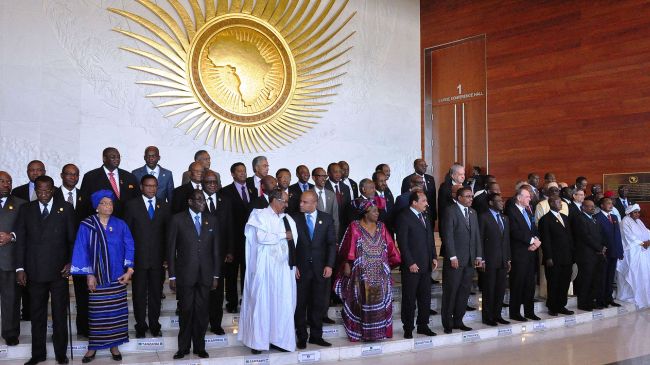The feeling was nice to be seated in the Nelson Mandela Hall of the African Union Headquarters on Thursday 25th February 2016 when the African Ministers of Health were reviewing, negotiating and finalizing the ministerial declaration on Immunization. It was an intensive 2 days African Ministerial Conference on Immunization with lots of presentations and panel sessions all geared towards mobilizing commitment in the African continent to improve financial resources and coverage on Immunization.
I was amazed by the ministers’ interest as each minister representing his/her government took a turn to comment and shared his/her view to ensure a consensus was reached among the august participants. At the end of the conference a declaration was finalized and signed and what remains now is to deliver on those commitments.
The declaration recognized the following;
- A 50% decline in child death rates, and ever-growing numbers of children attending school.
- Widespread access to vaccines that were not available to African children and adults just a decade ago.
- Higher vaccine coverage rates across the continent in each five-year periods between 1999-2014.
- The remarkable achievement of the Africa continent for interrupting wild poliovirus transmission for more than one year; achieving near elimination of Meningococcal meningitis A epidemics, and the significant reduction in disease burden and mortality due to measles.
The conference recalled with nostalgia the Heads of State Declaration on Polio Eradication in Africa: “Our Historic Legacy to Future Generations” (Johannesburg, June 2015); the World Health Assembly resolution (WHA68.6) on the Global Vaccine Action Plan (Geneva, May 2015), the commitment made by African Ministers of Health on Universal Health Coverage in Africa (Luanda, April 2014); the Immunize Africa 2020 Declaration (Abuja, May 2014) endorsed by African Heads of State; the World Health Assembly resolution that commits all 194 Member States to apply the vision and strategies of the Global Vaccine Action Plan (GVAP) (Geneva, May 2012), and the African Heads of State endorsement of the Pharmaceutical Manufacturing Plan in 2012 as the framework for African people to have access to essential, quality, safe and effective medical products and technologies. It also admitted some challenges regarding universal access to immunization by 2020, as endorsed under the GVAP, of which Africa is off track as indicated by the 2014 GVAP report.
The Health Ministers collectively and individually committed to do the following;
- “Keeping universal access to immunization at the forefront of our efforts to reduce child mortality, morbidity and disability, and in doing so help our countries achieve their long-term health, economic and development goals.
- Increasing and sustaining our domestic investments and funding allocations, including innovative financing mechanisms, to meet the cost of traditional vaccines, fulfil our new vaccine financing requirements, and providing financial support for the operational implementation of immunization activities by EPI programs.
- Addressing the persistent barriers in our vaccine and healthcare delivery systems, especially in the poorest, vulnerable and most marginalized communities, including the strengthening of data collection, reporting and use at all levels as well as building effective and efficient supply chains and integrated procurement systems.
- Increasing the effectiveness and efficiency, as well as changing the approaches as needed, of our immunization delivery systems as an integrated part of strong and sustainable primary health care systems.
- Attaining and maintaining high quality surveillance for targeted vaccine preventable diseases.
- Monitoring progress towards achieving the goals of the global and regional immunization plans.
- Ensuring polio legacy transition plans are in place by end-2016 that will allow future health programs to benefit from the knowledge and expertise the polio program has generated through the eradication initiative.
- Developing a capacitated African research sector to enhance immunization implementation and uptake.
- Building broad political will, working with communities, civil society organizations, traditional and religious leaders, health professional associations and parliamentarians, for the right of every child and every community to have universal access to life-saving vaccines, and by extension the best possible chance for a healthy future.
- Promoting and investing in regional capacity for the development and production of vaccines in line with the African Union Pharmaceutical Manufacturing Plan including the strengthening of national regulatory authorities.
- The World Health Organization and the African Union Commission to support member states to share experiences, strengthen capacity, and establish mechanisms for monitoring progress towards the fulfilment of these commitments.
Now that all the Health Ministers are back home and supposedly had briefed their heads of state, it is time for reflections, planning and real business to strategies on how to galvanize actions for this declaration. The Media and the civil society organizations should also be vigilant and repeatedly be calling and reminding the leaders to deliver on their promises.
All comments to Dr Aminu Magashi Publisher Health Reporters (healthweekly@yahoo.com)




